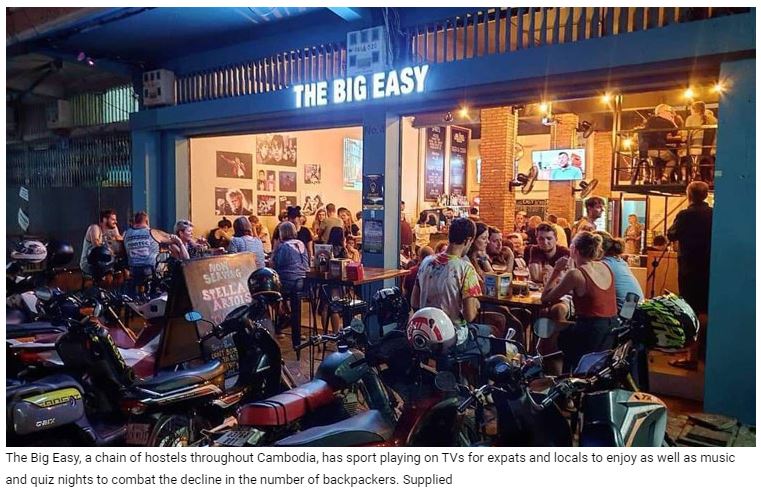Cambodia: Back-packer businesses looking forwards
Back-packing-based businesses across Southeast Asia have seen a huge drop in business because of COVID-19 prompting border closures as well as travel restrictions.
Companies that specialise in that area of travel are either throwing in the towel or adapting. Many are pushing forward with the latter option.
There have been backpackers exploring Southeast Asia for decades. The Cambodian route is so popular with budget travellers that it is thought of as a part of the region’s so-called Backpacker Trail.
That was until earlier this year when the Novel Coronavirus spread across the world and put a halt on tourists entering the Kingdom.
Now, backpacker-reliant businesses are having to find new ways of drawing in local customers to keep their businesses afloat.
Many of the backpacking hostels are a part of chains that don’t only run in Cambodia but also across different parts of Asia.
These hostels are now changing to suit local needs as well as some of them having to cut back on staff.
The general manager of Lub D hostel in Siem Reap, who woud only go by the name of Matt, explained: “For us to survive, we as a company looked at all areas and positions and then made decisions on how we can combine positions or use technology. It now seems that this is the new norm and businesses need to look at all services that are offered and decide whether the guests will use that service. We have to ask ourselves, ‘Can you combine positions so that the business can survive?’ This also has been the case for Lub D as a company because we have hostels in Thailand that have been affected worse than here in Cambodia.”
Some of the backpacker-based companies, however, aimed at a local clientele within their business model before COVID-19.
The Big Easy, a chain of hostels throughout Cambodia, has sport playing on TVs for expats and locals to enjoy as well as music and quiz nights.
Tom Jeffery, co-owner of The Big Easy, said: “Our hostel in Phnom Penh is surviving because of the number of expats that come in to eat and drink. We have extended our happy hours and locals seem to love it.”
“Our rooms are currently not open because we are using this time to renovate them while there are no tourists. As for our other location on the island of Koh Rong Sanloem, it is quiet. People only seem to be going to the islands during public holidays or weekends. I think a lot of businesses are struggling there at the moment.”
Another chain of hostels and one of the biggest is Mad Monkey. They have been open for nine years and have expanded their business throughout Asia in places such as Cambodia, Laos, Thailand and the Philippines.
Mad Monkey has always been aimed directly at backpackers so now the company is having to completely restructure its business.
Alex Darroch, co-founder and director of Mad Monkey, said: “Our revenues have been severely impacted by the travel restrictions and tourists being unable to travel. Currently, most of our hostels in Asia are completely closed but we are looking to re-open them slowly while adapting to the situation in each Location. We have switched our business model to appeal towards the local and domestic markets along with expats and other long-term guests. In Phnom Penh, we have now adjusted our food and beverage menu to operate as a family-friendly beer garden hosting small parties and events within the social distancing rules.” “It’s all about surviving and adapting until travel restrictions are lifted and the world opens up again.”
Source: https://www.khmertimeskh.com/50767685/back-packer-businesses-looking-forwards/


 English
English




